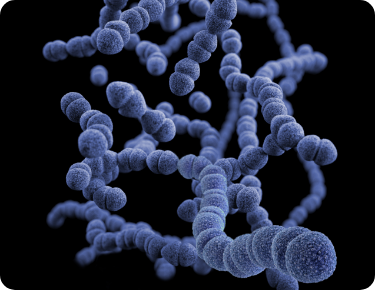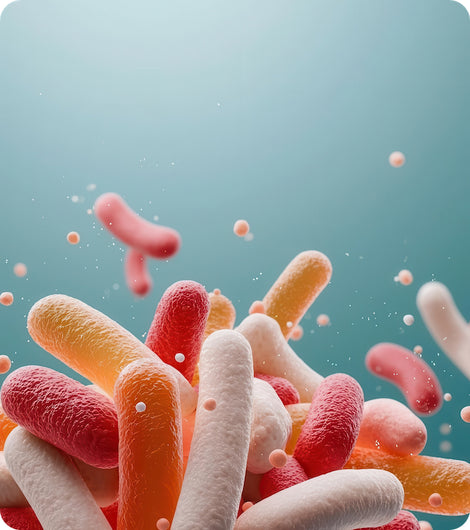Your gut says a lot about your health.
Our gut not only regulates our digestive system but also affects our mental wellbeing, our immune system and cardiovascular function. Recent studies reveal that our gut microbiota may affect other aspects such as fertility.
Gut flora influences reproductive fitness in women and thus, it is important to be aware of our gut behaviour. The gut biome and genetics play a key role in reproductive issues.
There is a considerable rise in women who are facing issues in conceiving. The latest statistics suggest that about 12% of women aged 15 to 44 years in the United States have infertility issues. On the other hand, as of 2021, infertility affects about 10% of all males in the United States who are trying to conceive.

Image by Digbi Health
Women are having a hard time conceiving because of multiple factors like lifestyle, age, diet, imbalance in hormones, and gut health. The traditional western diet, which is high in refined carbohydrates, saturated fat, and food additives, has been associated with a higher risk of digestive problems.
A holistic diet program with lifestyle modifications can help you build strong gut health.
What is a gut biome?
The gut biome is a variety of microorganisms and genetic material (or microbes for short) like bacteria, viruses, fungus, and other living organisms.
Every gut microbiome is completely unique. The gut microbiome influences everything from skin health to hormone balance. The microbiome refers to this ecosystem as a whole. The more varied microbiome, the healthier you are.
Initially, the scientific community had limited the gut microbiome’s functions to regulating the digestion
Gut Biome and Genetics
Most microorganisms in the gut microbiome are genetically determined.
Studies demonstrate that our gut microbiome is mostly influenced by our lifestyle, such as what we eat, the treatments we take, and exercise. However, according to a new study, heredity has a greater impact on gut flora than previously thought.
Genetics contribute to the composition of gut microbiomes. At least two human genes play a significant role in determining the composition of our gut ecosystem: the lactase gene and the fucosyl-transferase gene which have an impact on the number of lactose-digesting bacteria.
Human gut microbiota genetic factors are linked to 28 different health & disease outcomes, including hypertension, BMI, etc.
How Gut Health Affects Fertility
Lack of gut health can lead to an estrogen imbalance, which can cause infertility in both men and women. One reason for this could be a lack of a varied spectrum of good bacteria to detoxify the body of hormones.
A recent study found that a high-fat diet can cause gut flora imbalance that leads to ovarian inflammation.
Changes in the variety of the gut microbiome can reduce or increase the activity of enzymes, resulting in lower or greater levels of estrogen, causing menstrual cycle disturbances, irregular periods, impaired ovulation, PCOS, and endometriosis, and ultimately reducing fertility success.
The Future of Gut Care: Digbi Health
We need to move beyond just diet and weight loss changes.
Digbi’s at-home gut kit is a simplified solution to your gut health issues. After we receive your gut kit, we conduct a thorough scientific analysis and study your gut biome and genetics relationship. We deliver a personalized program based on your genetic and gut results. Then, with the assistance of our coaches, we suggest simple, gradual changes to enhance your gut, weight, and general health.
Digbi Health’s Case Study: Improving Fertility
Shirley, a Digbi member, was keen on starting a family but was facing issues in conceiving because of PCOS. Digbi’s personalized diet plan helped her overcome her weight issues and regulate her menstrual cycle.
After 2 months under Digbi’s care, she overcame not only PCOS but also recurring Sciatica pain. A healthy gut, weight loss and a sound sleep cycle helped Shirley improve her lifestyle.
FAQs
-
Is gut health linked to fertility?
Yes. Recent studies show that our gut flora can affect the levels of estrogen that regulate the menstrual cycle and ovarian health. The gut microbiome affects both men and women, thus it is important to focus on gut health. -
How does the microbiome affect gene expression?
The gut biome and genetics are linked. Bacteria in the stomach have been identified to be able to regulate genes in our cells, according to scientists. Their findings reveal that bacterial chemical messengers can modify chemical markers throughout the human DNA. -
Do genetics contribute to gut microbiomes?
Human gut microbial density is influenced by host genetics. Changes in specific host genes can lead to changes in the gut microbiota, which can lead to greater disease vulnerability. -
How does Digbi help in building strong gut health?
Digbi’s at-home gut kit is an easy solution to your gut health issues. Digbi’s health coaches deliver personalized diet plans based on your genetic study. -
Can fertility be improved with a healthy gut?
A healthy gut regulates the menstrual cycle and can help overcome issues like PCOS, ovarian and inflammation, thus, aiding fertility.
















